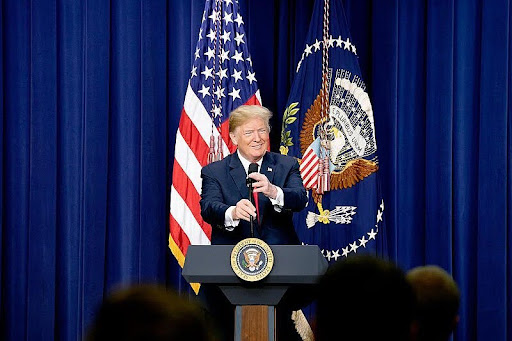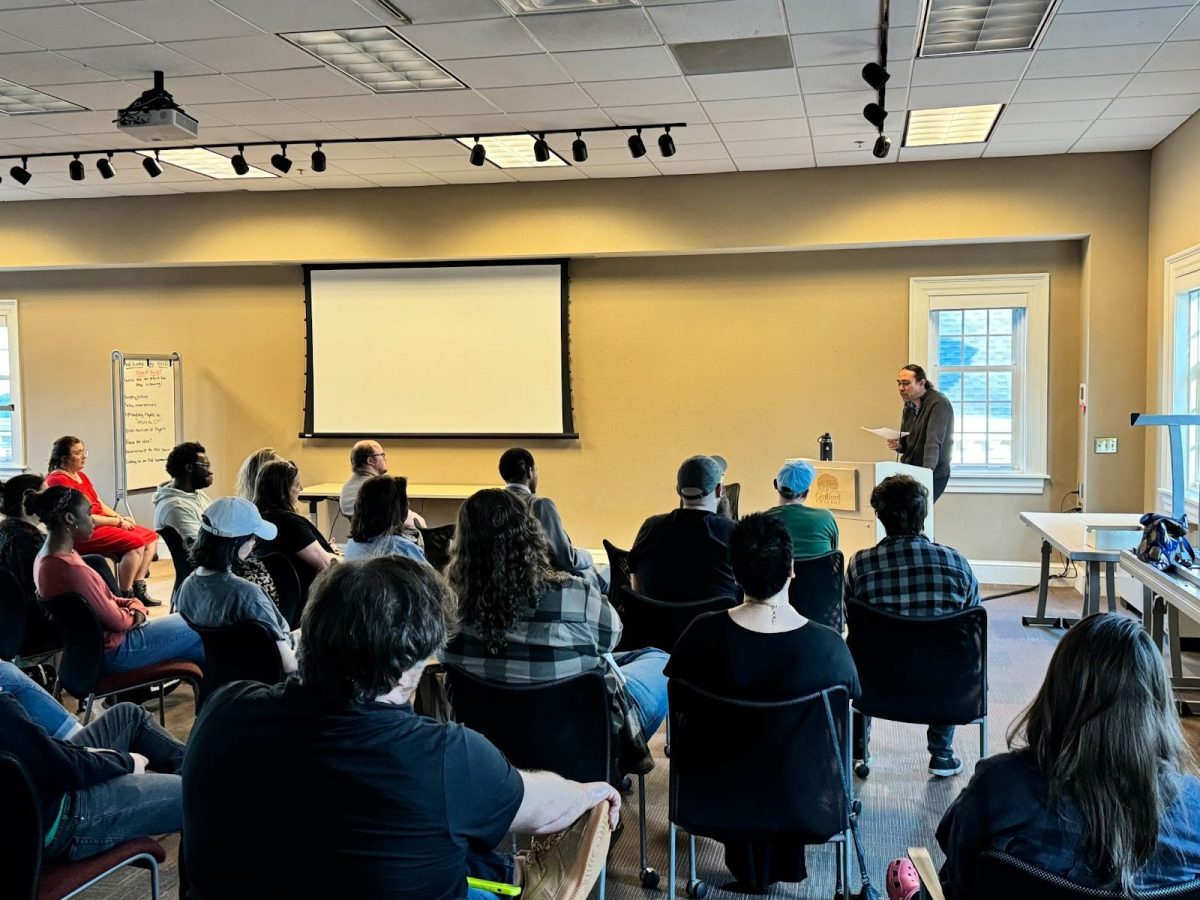As the search for the next Guilford College president continues, The Guilfordian sat down with three authorities on Guilford’s history to collect memories and advice regarding the eight, soon to be nine, past presidents.
Max Carter, director of the Friends Center and campus ministry coordinator; Alexander Stoesen, retired member of the Guilford College history department and author of “Guilford College: On the Strength of 150 Years” and Gwendolyn Erickson, senior librarian and Friends historical collection archivist, answered questions about a president’s influence on the College.
Q: Historically, from your perspective, how important has the president of Guilford been in charting the path for the school?
MC: Very important. Lewis Lyndon Hobbs created the template for a Quaker pedagogy in the modern college. Clyde A. Milner created a national college and made commitments to the marginalized. Grimsley T. Hobbs hired faculty who made Guilford progressive. William R. Rogers reinvigorated the Quaker emphasis of the College. Donald W. McNemar diversified the College. Kent J. Chatobar affected a different look to the College and rationalized the financial structure of the place.
GE: I think it is very important. We have only had a few presidents over our entire history. Depending on the era we are discussing, some have had more influence than others. The president sets the tone for the College. Others play a role also in terms of trustee decisions and leading faculty members. I think it is important how students interact with the administration. That can have a big impact as well.
Q: From your perspective as a Quaker and a person committed to the school for many years, how important is Quakerism in a president’s leadership at this college?
MC: I personally believe that an intimate knowledge of and connection to Quakerism is very important in getting the peculiar culture of Guilford, owning it, and embracing it … It is not as crucial that a president be Quaker, as it is that the person gets Quakerism at a deep level. For all its foibles and eccentricities, Guilford is a Quaker institution in meaningful ways, and the president needs to embrace that, critique interpretations of Quakerism where appropriate —which requires a certain understanding of the faith’s complexities and varieties of interpretation — and apply Quaker understandings to important decisions and trajectories of the College … Her/his understanding of Guilford’s Quaker ethos cannot be something that is peripheral to the real mission of the College, but central to it. The president needs to get the fact that Quakerism comes with particular benefits that enhance a student’s education and prospects. For example, Quakerism’s use of centering silence, of clearness committees, of worship sharing, of discernment and of testimonies such as peace, simplicity, equality and integrity as evidences of a transformed life, are real tools that can enhance a student’s meaningful life. A president who fully understands the richness of Quakerism can support, enhance, and incorporate those valuable resources in the College’s life. I want a president who gets that.
AS: Quakerism is very important. I think it is his job to make the College the soul of the yearly meeting.
GE: It is not necessary for the president to be a Quaker himself, as long as he has an understanding of Quakerism. He needs openness to supporting and acknowledging our Quaker heritage and exploring how that reveals itself in current practice is vitally important. In the higher education environment, it is good to maintain distinctives, those things valued by students and the community. If a leader is insecure about that or is not comfortable with it, that is a problem if he needs to articulate it to a wider community.
Q: Do you have any recommendations for the next president in terms of leadership style?
MC: The next president needs to focus on identity and ethos as much as fundraising and enrollment.
AS: The next president needs to make sure that he or she knows finances and stays in touch with the faculty.
GE: The next president should have a collaborative leadership style and the ability to listen to a variety of voices. Those are the two key things. He should be able to balance many of the challenges of being chief administrator to a very complex institution.






